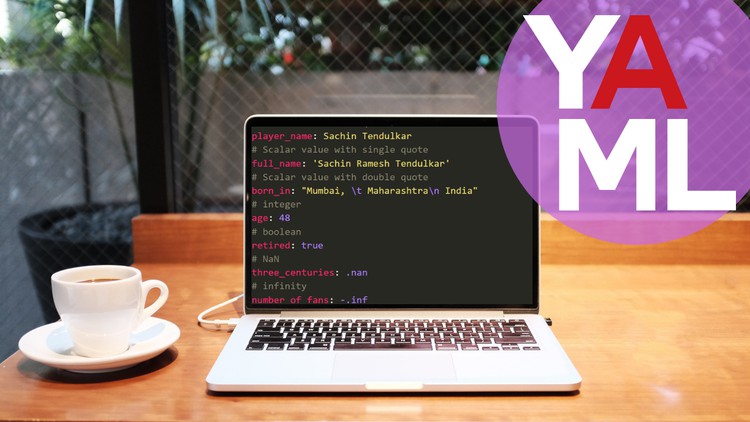Introduction to YAML – A hands -on course
Learn YAML by doing – This ain’t just a theory course
What you’ll learn
Introduction to YAML – A hands -on course
- What is YAML
- The design goals of YAML
- All the syntax and components of YAML
- Use cases of YAML including Docker Compose and Kubernetes
- How to load and dump YAML content with Python
Requirements
-
No Programming Experience required
-
Some Computer Fundamentals Required
Description
This course is for Free!!
Are you learning DevOps?
Are you a computer science student?
Are you a Programmer?
Then, you should learn about YAML now!!
Learn one of the most popular data serialization languages for Free
What you will get:
- Free course
- Complete YAML Tutorial
- YAML official Cheat sheet
- A hands-on course where you will learn by doing
- Python code to load and dump YAML
- Docker-compose understanding
- Kubernetes YAML file understanding
YAML is a human-readable data-serialization language. It is commonly used for configuration files and in applications where data is being stored or transmitted. YAML targets many of the same communications applications as Extensible Markup Language (XML) but has a minimal syntax that intentionally differs from SGML.
YAML is line-oriented and thus it is often simple to convert the unstructured output of existing programs into YAML format while having them retain much of the look of the original document. Because there are no closing tags, braces, or quotation marks to balance, it is generally easy to generate well-formed YAML directly from distributed print statements within unsophisticated programs. Likewise, the whitespace delimiters facilitate quick-and-dirty filtering of YAML files using the line-oriented commands in grep, AWK, Perl, Ruby, and Python.
The course has the following content:
- Understand what YAML is
- Data Serialization
- YAML vs JSON vs XML
- YAML Design goals
- Learning by doing YAML
- Understanding components of YAML
- Defining a profile of a cricket player with YAML
- Defining a matrix with YAML
- Use cases of YAML
- Reading YAML with Python
- Storing config file with YAML
- Docker-Compose file with YAML
- YAML in Kubernetes
I hope you enjoy this free course.
Cheers,
Mohit
Who this course is for:
- Begineer DevOps Engineer
- Software Developers who work with YAML
- Docker and Kubernetes Engineer










Add Comment